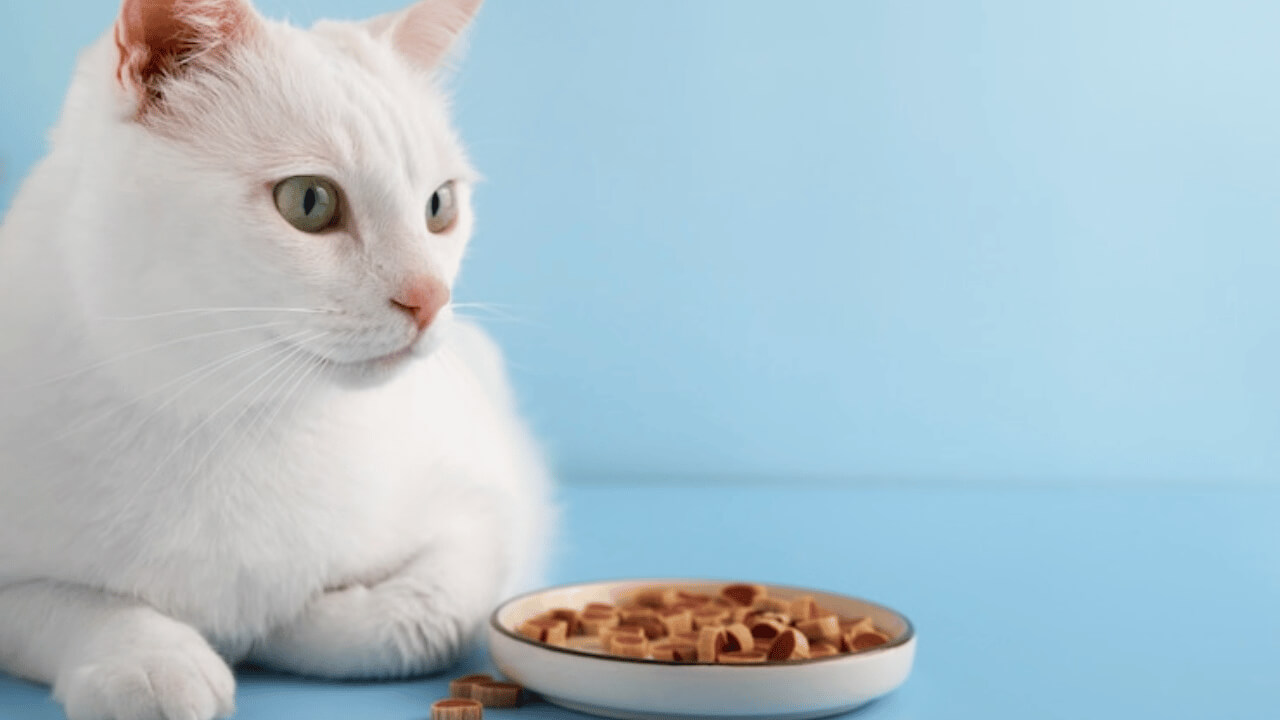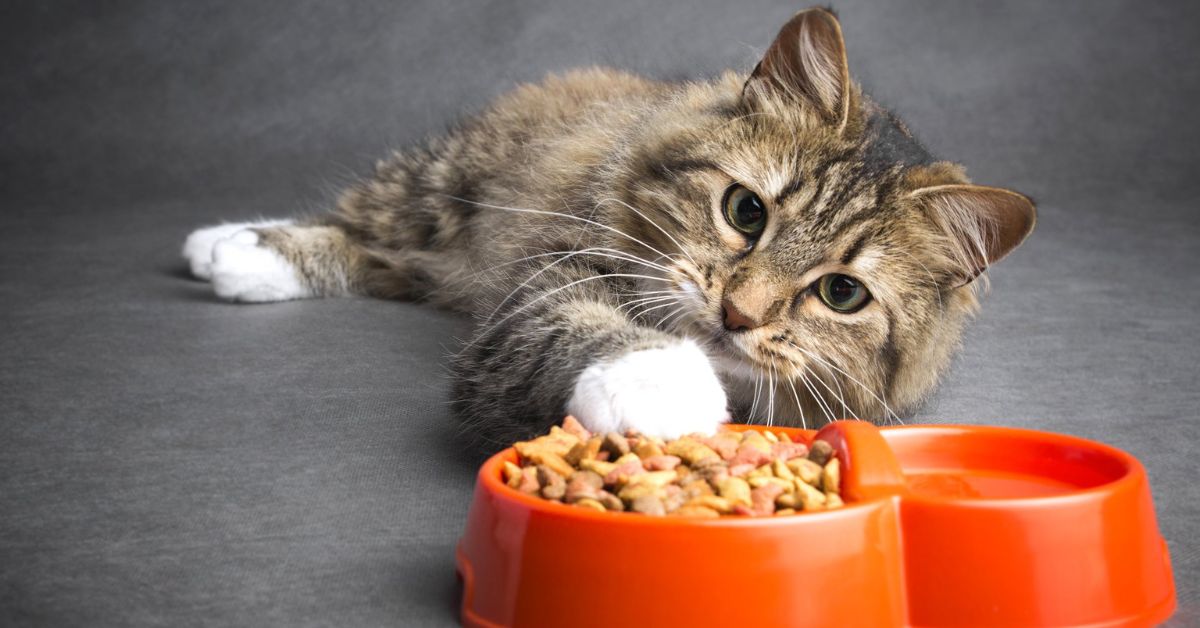Cats and dogs, though often portrayed as natural adversaries, share households and sometimes even their food bowls. Their dietary needs, however, are vastly different. If you’ve found your cat nosing around your dog’s treat stash, you might wonder, “Can cats eat dog treats?” This blog aims to demystify this common question, providing clear insights into the implications of letting your feline friend indulge in canine snacks.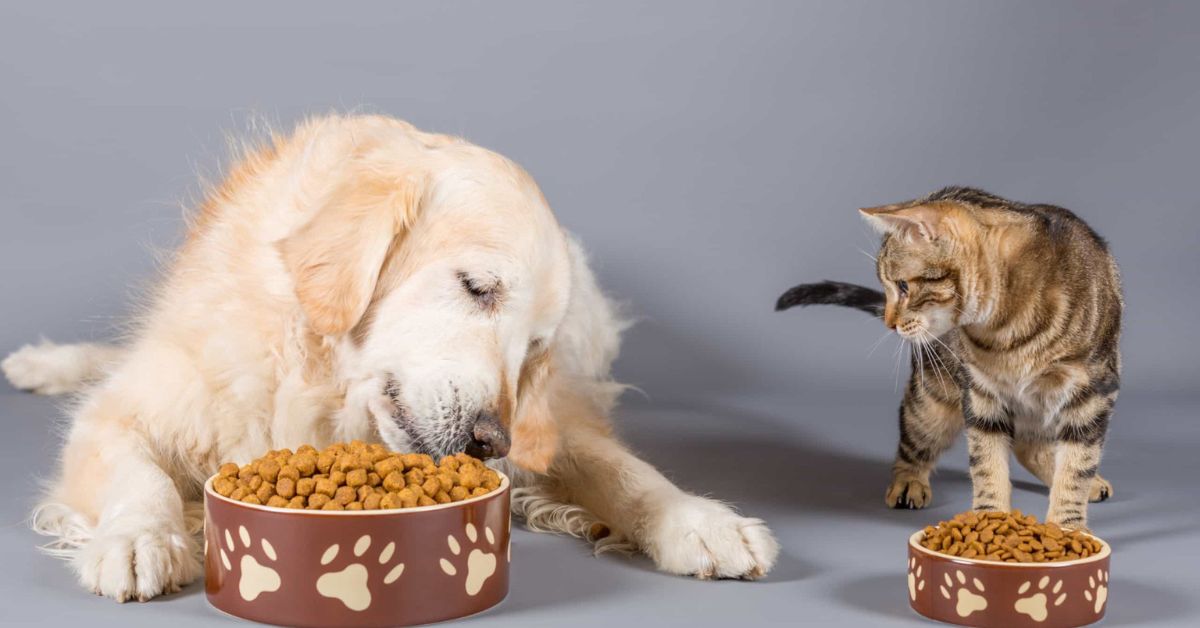
Can Cats Eat Dog Treats?
At first glance, Can cats eat dog treats? It’s harmless enough to share with your furry friend. However, it’s essential to examine the ingredients. Dog treats are formulated to meet the dietary requirements of canines, not felines. Cats require specific nutrients like taurine, arachidonic acid, and certain amino acids that aren’t in sufficient quantities in dog treats. Additionally, the primary ingredients in dog treats often include higher levels of meat-based proteins and fats suitable for dogs but potentially excessive for cats.
While an occasional dog treat might not cause immediate harm, regular consumption could lead to nutrient imbalances. It’s crucial to keep the dietary needs of your cat in mind. Cat food and treats are carefully designed to meet their unique nutritional requirements, ensuring they get the necessary vitamins, minerals, and protein levels.
The Risks of Feeding Cats Dog Treats
Feeding your cat or dog treats regularly can pose several health risks. One significant concern is taurine deficiency. Taurine is an essential amino acid that cats need for heart health, vision, and reproduction. While dogs can synthesize taurine, cats must obtain it through their diet. Dog treats typically lack sufficient taurine, leading to cat deficiencies that can cause heart disease and muscle weakness.
Another risk is the presence of toxic ingredients. Some popular dog treats contain additives like propylene glycol, which can harm cats. Ingredients such as garlic and onions, commonly found in dog treats for flavour, are also toxic to felines. Consuming these can lead to severe digestive issues and long-term health consequences.
Additionally, the levels of protein and fat in dog treats can overwhelm a cat’s digestive system. Cats have different energy requirements and metabolize nutrients differently. High fat content in dog treats can contribute to obesity and related health issues in cats, affecting their overall well-being.
Can Dogs and Cats Share the Same Treats?
The idea of dogs and cats sharing the same treats might seem convenient, but it’s not advisable. The nutritional requirements of protein, vitamins, and minerals differ significantly between the two species. While some soft treats designed for dogs might seem suitable, they often still lack the essential nutrients cats need.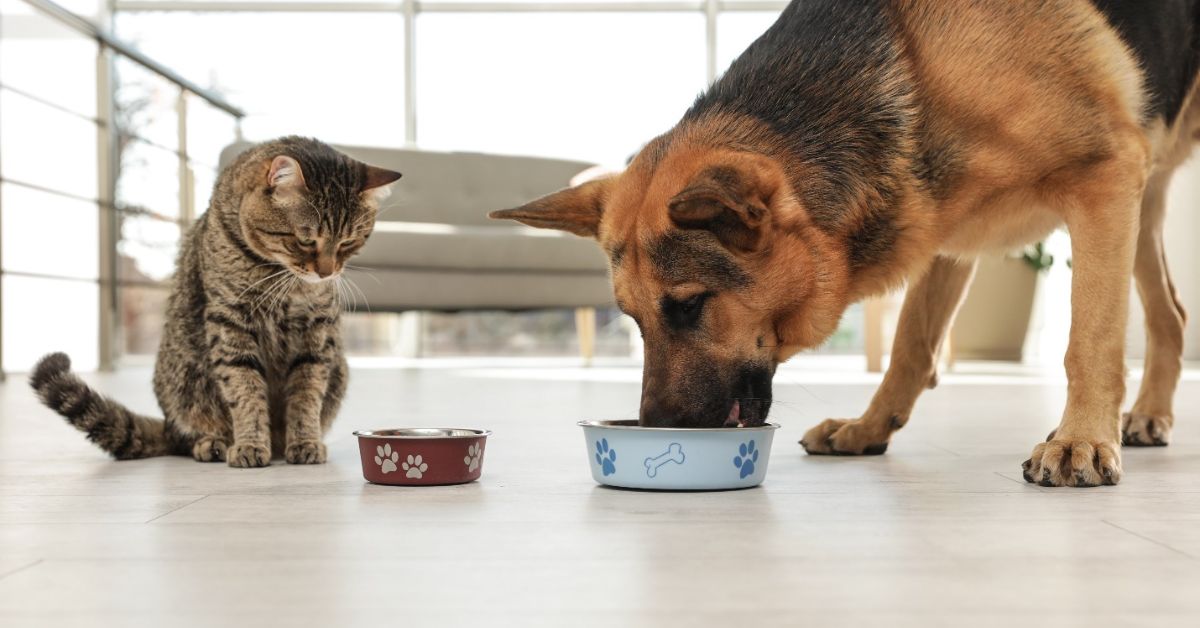
Dogs can enjoy a broader range of foods, including some human foods that are safe for them but not for cats. For instance, dogs might tolerate dairy products, but they can cause digestive upset in cats. Ensuring each pet receives treats formulated for their species is crucial to maintaining their health.
While cats may express interest in eating dog treats, allowing them to indulge regularly is not worth the risk. The potential health consequences and nutrient imbalances make it clear that dog treats are unsuitable for felines. As a responsible pet owner, providing your cat with treats explicitly designed for their dietary needs is essential. Consult with your veterinarian if you have any concerns or questions about your cat’s diet, and ensure they receive proper nutrition to lead a healthy and happy life. So next time your curious cat comes sniffing around your dog’s treat stash, remember the risks involved and
Can Cats Eat Dog Chews?
Dog chews, particularly those designed to clean teeth and promote dental health, are often too harsh for cats. Cats have smaller jaws and teeth, making it difficult and potentially dangerous to chew on hard dog treats. The risk of choking or damaging their teeth outweighs any potential benefits. Some dental chews contain ingredients like xylitol, which can be toxic to cats.
While giving your cat or dog treats may seem harmless or even tempting, it’s not worth the potential risks and health consequences. Cats’ unique dietary needs must be met through properly formulated treats and food. Consult with your veterinarian if you have any concerns about your cat’s diet or if they show an interest in dog treats. As a responsible pet owner, it’s crucial to prioritize your cat’s health and well-being by providing them with appropriate nutrition.
Additionally, dog dental treats might contain ingredients like ethylene glycol, which are safe for dogs but toxic to cats. Always choose treats specifically designed for cats when considering their dental health. These treats have the appropriate texture and nutritional content tailored to feline needs.
Can Cats Eat Soft Dog Treats and Biscuit Treats?
Soft dog treats and biscuit treats seem harmless due to their smoother texture. However, they still don’t provide the balanced diet that cats require. These treats’ moisture content and primary ingredients are formulated for dogs, not cats.
Although soft treats might be easier for cats to chew, they still lack essential nutrients like arachidonic acid and taurine. Feeding your cat these treats consistently can lead to nutritional deficiencies over time. Stick to cat-specific treats to meet their dietary needs while satisfying their taste buds.
While feeding your cat or dog treats may seem convenient or harmless, it’s not worth the potential risks and health consequences. Cats’ unique dietary needs must be met through properly formulated treats and food. Always prioritize your cat’s health and well-being by providing appropriate nutrition. Consult with your veterinarian if you have any concerns about your cat’s diet and ensure they receive proper nutrition to lead a healthy and happy life. Treating your cat means giving them treats specifically designed for their species, not just anything labelled as a “pet treat.”
Why Do Cats Like Dog Food?
Dog food might intrigue cats due to its strong aroma and taste. Dog food often contains more fat and animal-based proteins, which can appeal to a cat’s senses. However, even though they like the taste, it could be better.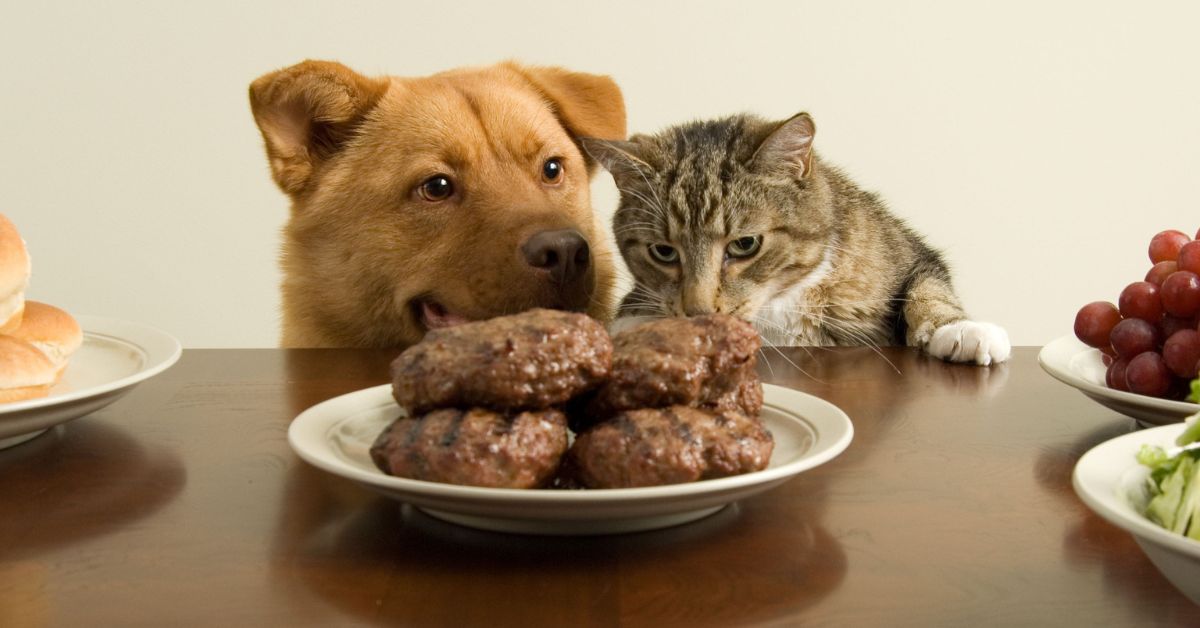
The dietary requirements of cats include specific vitamins, minerals, and nutrients that aren’t found in adequate levels in dog food. Feeding your cat or dog food regularly can lead to deficiencies in essential vitamins and amino acids, affecting their long-term health. It’s best to satisfy their curiosity with appropriate cat food and treats. Cat food is also formulated specifically for their digestive needs and overall well-being.
While allowing your cat to indulge in dog treats or food may seem convenient or harmless, it’s not worth the potential risks and health consequences. Cats’ unique dietary requirements must be met through properly formulated treats and food. As a responsible pet owner, prioritize your cat’s health by providing appropriate nutrition tailored to their species. Consult with your veterinarian if you have any concerns about your cat’s diet and ensure they receive proper nutrition to lead a healthy and happy life.
Alternatives for Treating Cats
Providing your cat with safe, healthy alternatives ensures they receive nutrients without compromising health. Here are some options:
- Freeze-Dried Cat Treats: These treats retain the nutritional value of the raw ingredients, offering high-quality protein sources without harmful additives.
- Natural Ingredients: Opt for treats made from natural ingredients, free from artificial flavours and preservatives. Look for treats with high moisture content to support hydration.
- Meat-Based Proteins: Choose treats rich in meat-based proteins which align with a cat’s natural diet. Ingredients like chicken, fish, and turkey are excellent options for high-quality protein.
Incorporating these treats into your cat’s diet ensures they enjoy a balanced diet that supports their overall health. Always consult your veterinarian to choose the best treats for your cat’s needs.
Conclusion – Prioritizing Your Cat’s Health
Feeding your cat or dog treats might seem harmless, but it’s essential to prioritize their unique dietary requirements. While an occasional dog treat won’t cause immediate harm, regular consumption can lead to serious health issues. Always opt for cat-specific treats that meet their nutritional needs and consult your veterinarian for personalized advice.
By understanding the differences between dog and cat dietary needs, you can make informed decisions that ensure your feline friend stays healthy and happy. Explore the variety of cat treats available and provide your pet with the best possible care. Please book a consultation with one of our experts today for more insights and personalized recommendations.
FAQ
Are dog treats ok for cats?
Can cats eat dog treats? Try not to give your cat dog goodies. Dog snacks are made especially for dogs, and some components (such as ethylene glycol) may be hazardous to cats. Find out from your veterinarian which snacks and treats are best for your cat.
What treats can dogs and cats share?
Apart from fruits, your pets can also consume various other safe foods, such as meats, breads, and some vegetables. However, cruciferous vegetables, like broccoli and cauliflower, are much simpler to digest if you boil or steam them.
Can cats eat dog food as a treat?
Dog food isn’t the best source of carbohydrates and vegetables, even if your cat might occasionally eat them. It will need more vitamins, fatty acids, and amino acids to meet your cat’s nutritional demands. Your cat may eat a meal or two of your dog’s food in an emergency (for example, if you run out of cat food).

